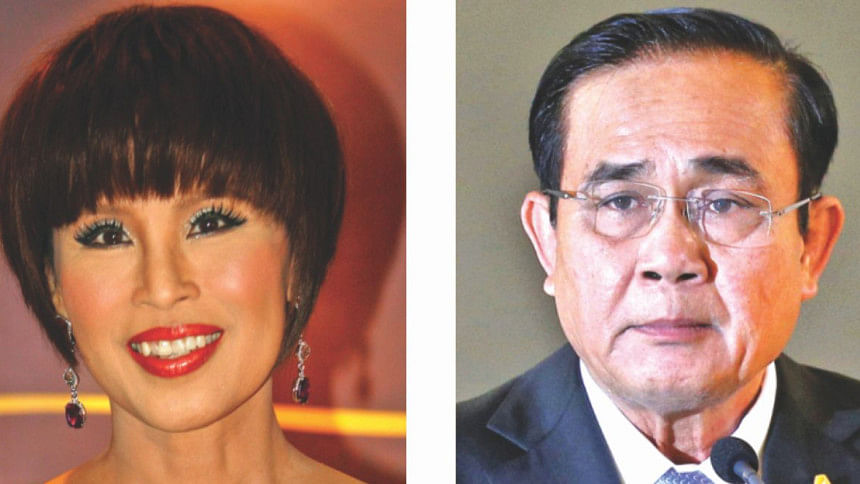WHAT IT MEANS?

HOW IS THE JUNTA AFFECTED?
Shortly after the Thai Raksa Chart party announced Ubolratana's candidacy for premier, junta leader Prayut Chan-O-Cha said he would also stand for the post -- for a political grouping aligned with the military. But the princess's involvement is a serious roadblock to his ambitions, putting him in direct rivalry with a member of the institution he seized power vowing to defend. Thai Raksa Chart, with a wide electoral pull across the country, is part of the political machine headed by former prime minister Thaksin Shinawatra, who was ousted in a coup in 2006. Prayut's chances of returning as premier are getting "smaller and smaller", according to Puangthong Pawakapan, professor of political science at Chulalongkorn University.
WILL IT HEAL DEEP POLITICAL DIVIDES?
Analysts are divided over whether the move will help bridge Thailand's bitter schisms. They are broadly between the Shinawatra-aligned rural poor and the Bangkok-based elite, and have resulted in rounds of deadly street protests and two coups since 2006. Coming out on the side of the Shinawatras will further complicate Thailand's troubled politics, said Pavin Chachavalpongpun, associate professor at the Center for Southeast Asian Studies at Kyoto University. "Thai politics has been drawn along the monarchy fault line and the latest move has further deepened that line." But the change was also seen as deft political footwork by Thaksin, who was spotted watching a World Cup football match last year with the princess in Russia. "In the past he (Thaksin) has been criticised as an anti-royalist force, and this is how he adjusted," said Kanokrat Lertchoosakul, a political science lecturer at Chulalongkorn University.
HOW THE PRINCESS WILL DO IN POLITICS?
Her political experience is limited, but the Shinawatras have a deep pool of political know-how. Thaksin and his sister Yingluck were both ousted in military coups, in 2006 and 2014 respectively. Still, their parties have won every election since 2001. Ubolratana is well-known among the Thai public having appeared in movies, stage performances and maintaining an active vibrant social media presence. "I feel great. And I think she's a suitable choice," Thai homemaker Nirinsiri Chanboriboon, 41, told AFP after the announcement. But she is still untested politically and Thai social media was full of scepticism over the move -- with many unsure what to make of it. But by entering the political arena the princess may push the royals closer to public scrutiny. "It may not be promising for the royal institution itself," Kanokrat said, adding that in the near future they may have to confront direct political pressure from the public.
WHAT ABOUT LESE MAJESTE NOW?
Thailand's monarchy is protected by one of the world's toughest royal defamation laws, making detailed discussion about the family's role almost impossible inside the kingdom. Ubolratana's entry into politics raises questions about how the media can cover her campaign, and even how analysts or the public can discuss her publicly. Technically, the princess would not be covered. She also relinquished her royal titles after marrying an American decades ago, before divorcing and returning to Thailand. She is however considered a member of the royal family and performs royal duties, and 112 has been routinely interpreted to cover any aspect of the monarchy. Under "112" anyone convicted of defaming, insulting or threatening the king, queen, heir or regent faces between three and 15 years in prison on each count.

 For all latest news, follow The Daily Star's Google News channel.
For all latest news, follow The Daily Star's Google News channel. 



Comments